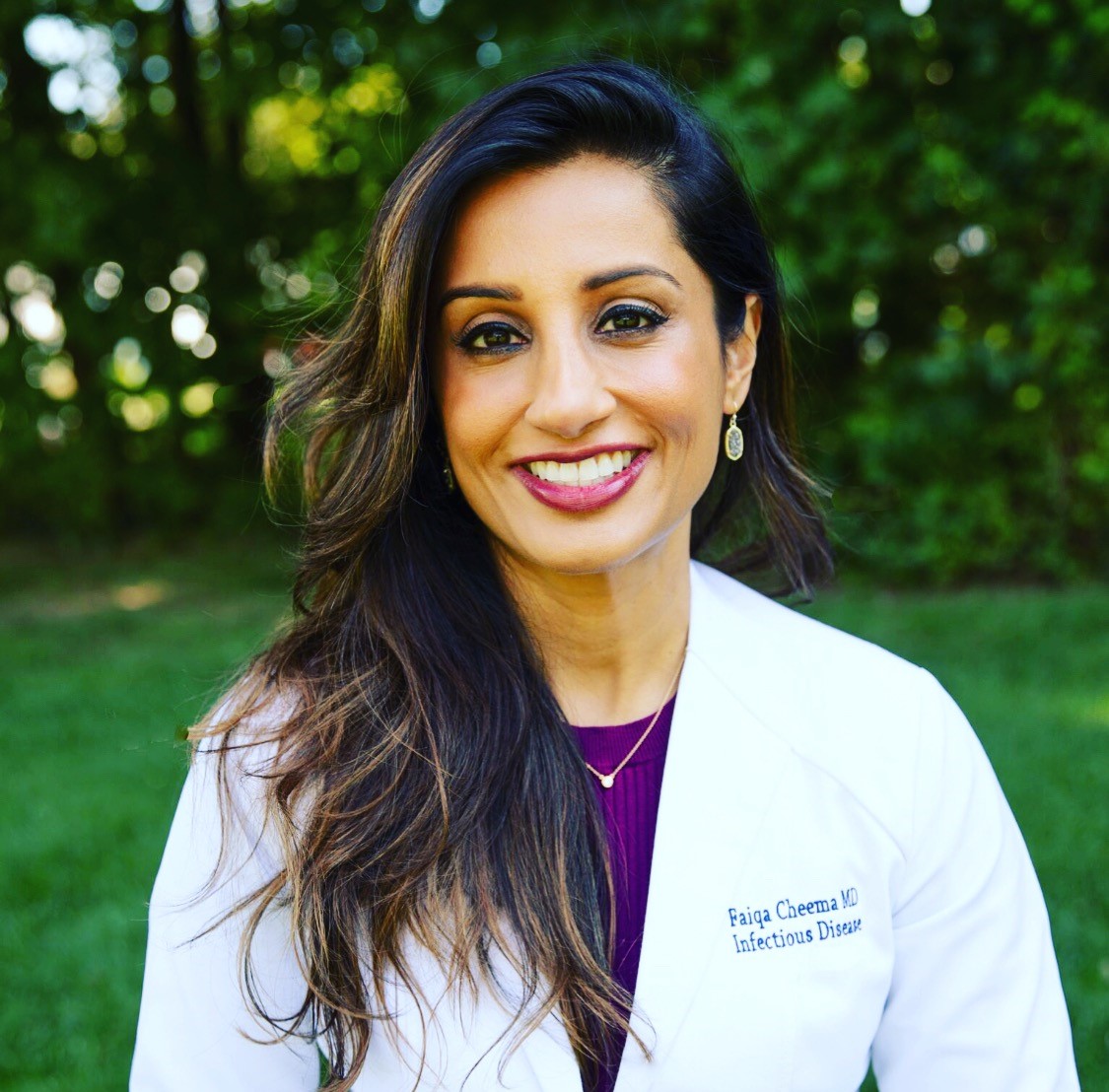Here is an edited version of a recent question-and-answer session with Dr. Faiqa Cheema, a Hartford HealthCare infectious disease specialist for Courant.com subscribers:
Q: Is it acceptable to let younger kids play outdoors with one or two friends, supervised by parents? Is it still best to limit a child’s “playing circle” to one or two friends, or is it OK to let them play with anyone? What do you think of sending kids to camp when the state guidelines are observed? The kids (and their stressed-out parents) are more desperate than anyone for reopening. I would trade all the businesses in the world for camp.
A: As a mother of two children, I completely empathize. I am also struggling to keep my children entertained and often wonder whatever happened to the days when we played all by ourselves making mud pies and crafting imaginary play. It all comes down to your comfort with risk tolerance.
I can speak for myself: I am not allowing my children to play one-on one with their friends in close proximity. I do let them ride their bikes with their friends in the neighborhood and they are given strict instructions to wear their masks when closer than 6 feet from their friend.
Regarding camps, we are going to pass on routine camps for this summer but that is related to my own personal preference, instead we are going to let them participate in camps that have outdoor activities like tennis and golf in smaller groups.
Q: Do you think it would be helpful for health officials to offer drive-through COVID-19 antibody tests conducted outside, in cars, as many of the diagnostic tests were conducted. It seems like going into a healthcare clinic for the antibody test creates an unnecessary risk, while of course knowing who has the virus seems helpful overall.
A: Yes, I certainly see utility in doing drive-through antibody testing, however at this time we are uncertain what those antibodies would mean as well. Antibodies are proteins that help fight off infections and usually provide protection specific to the disease what we call immunity. This immunity can either be life-long or nearly non-existent.
We still have a lot to learn about SARS-CoV-2 immunity and much of our understanding of corona virus immunity comes from studying 2 other coronaviruses such as SARS and MERS (Middle Eastern Respiratory Virus) which have infected a relatively small number of people.
So far, here is what we do know about COVID-19 immunity:
- Our immune system has never seen this virus and therefore we do not have any immunity against it.
- Antibody test should never be used to diagnose COVID-19.
- Most individuals infected with SARS-CoV-2 will have an immune response, some better than others.
- It can be assumed safely that this immune response will offer some level of protection at-least for this year.
- At this time we do not know how long this immunity will last and for how long.
Q: My guitar teacher is resuming one-on-one teaching next week, at his home for a half-hour session per student. I’m the first student of the day. Should I have qualms about resuming these once-weekly sessions? And any particular caution appropriate?
A: I am happy to hear that you are resuming your guitar lessons. My advice is to perhaps check with your teacher if these lessons can be given in an outdoor setting (patio) vs. an enclosed room, where it may not be possible to stay 6 feet apart. If this is not possible, you can take the lessons indoors (if you are the only student for the 30-minute class), wear your mask for the 30-minute duration and sit 6 feet away from your teacher. Don’t forget to pack your hand sanitizer in your bag.
Q: Are scientists looking into the reasons someone can have the virus, but not get sick? The genetic or biological implications of asymptomatic carriers would be significant and it would be interesting to find out how this happens.
A: I prefer to call it “pre-symptomatic” rather than “asymptomatic” transmission. Transmission of the virus occurs 24-36 hours BEFORE onset of symptoms, making it much more challenging to track and contain. Therefore, physical distancing, avoiding congregate settings and wearing masks have played a critical role in reducing transmission of the virus. A study published in the Lancet scientific journal reported that 1 meter or greater physical distance reduced risk of acquiring COVID-19 from 12.8 percent to 2.6 percent. Wearing a face mask reduced risk of COVID-19 infection and transmission from 17.4 percent to 3.1 percent. We still do not know the genetic predisposition of who develops little or no symptoms but can still spread the virus and if age, gender and race has any role to play. Great questions for current scientific research.
Q: I continue to hear conflicting information about the safety of handling and consuming fresh vegetables and fruits (including berries which are not easy to thoroughly wash) in regard to COVID-19 transmission. Being over the age of 65 with an autoimmune condition, I would like to know if these foods pose any risk for transmitting COVID-19 and if so what are the most up-to-date recommendations for handling and eating these foods, and are they safe to eat raw?
A: Transmission of the virus from handling or consuming unwashed fresh fruits and vegetables is thought to be low and recommendations are to wash them with water before consuming it, to the best of your ability without it being a source of mental anguish.
Dr. Faiqa Cheema is a Hartford HealthCare infectious disease specialist.
Not feeling well? Call your healthcare provider for guidance and try to avoid going directly to an emergency department or urgent care center, as this could increase the chances of the disease spreading.
Click here to schedule a virtual visit with a Hartford HealthCare-GoHealth Urgent care doctor.
Stay with Hartford HealthCare for everything you need to know about the coronavirus threat. Click here for information updated daily.
Questions? Call our 24-hour hotline (860.972.8100 or, toll-free, 833.621.0600).
Get text alerts by texting 31996 with COVID19 in the message field.



